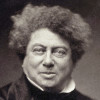“ He that is hungry takes his food as nature dictates, but he that punishes should have no hunger or thirst for it, nor require anger as a sauce to stimulate him to it, but should punish when he is as far as possible from having any desire for it, and has to compel his reason to it. ”
Plutarch, Moralia (c. 100 AD). copy citation
| Author | Plutarch |
|---|---|
| Source | Moralia |
| Topic | anger hunger |
| Date | c. 100 AD |
| Language | English |
| Reference | |
| Note | Translated by Arthur Richard Shilleto |
| Weblink | http://www.gutenberg.org/files/23639/23639-h/23639-h.htm |
Context
“For nothing causes people to punish so much when their anger is fierce, as that when it is appeased they do not punish at all, but forget the matter entirely, and resemble lazy rowers,281 who lie in harbour when the sea is calm, and then sail out to their peril when the wind gets up. So we, condemning reason for slackness and mildness in punishing, are in a hurry to punish, borne along by passion as by a dangerous gale. He that is hungry takes his food as nature dictates, but he that punishes should have no hunger or thirst for it, nor require anger as a sauce to stimulate him to it, but should punish when he is as far as possible from having any desire for it, and has to compel his reason to it. For we ought not, as Aristotle tells us slaves in his time were scourged in Etruria to the music of the flute, to go headlong into punishing with a desire and zest for it, and to delight in punishing, and then afterwards to be sorry at it—for the first is savage, and the last womanish—but we should without either sorrow or pleasure chastise at the dictates of reason, giving anger no opportunity to interfere.”
source


